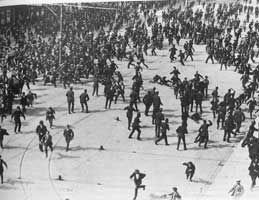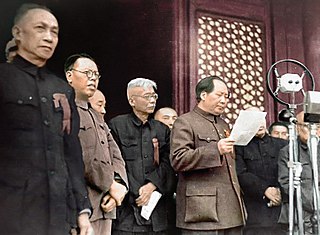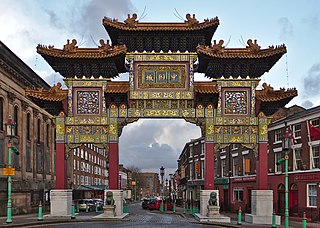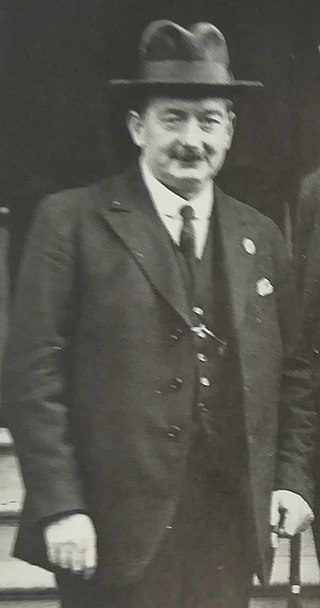Related Research Articles

The Winter of Discontent was the period between November 1978 and February 1979 in the United Kingdom characterised by widespread strikes by private, and later public, sector trade unions demanding pay rises greater than the limits Prime Minister James Callaghan and his Labour Party government had been imposing, against Trades Union Congress (TUC) opposition, to control inflation. Some of these industrial disputes caused great public inconvenience, exacerbated by the coldest winter in 16 years, in which severe storms isolated many remote areas of the country.

Impressment, colloquially "the press" or the "press gang", is the forced conscription of men into a military or naval force via intimidation and physical coercion, conducted by an organized group. European navies of several nations used forced recruitment by various means. The large size of the British Royal Navy in the Age of Sail meant impressment was most commonly associated with Great Britain and Ireland. It was used by the Royal Navy in wartime, beginning in 1664 and during the 18th and early 19th centuries as a means of crewing warships, although legal sanction for the practice can be traced back to the time of Edward I of England. The Royal Navy impressed many merchant sailors, as well as some sailors from other, mostly European, nations. People liable to impressment were "eligible men of seafaring habits between the ages of 18 and 55 years". Non-seamen were sometimes impressed as well, though rarely. In addition to the Royal Navy's use of impressment, the British Army also experimented with impressment from 1778 to 1780.

The National Union of Seamen (NUS) was the principal trade union of merchant seafarers in the United Kingdom from the late 1880s to 1990. In 1990, the union amalgamated with the National Union of Railwaymen to form the National Union of Rail, Maritime and Transport Workers (RMT).
Joseph Havelock Wilson, commonly known as Havelock Wilson or J. Havelock Wilson, was a British trade union leader, Liberal Party politician, and campaigner for the rights of merchant seamen.

A lascar was a sailor or militiaman from the Indian subcontinent, Southeast Asia, the Arab world, British Somaliland or other lands east of the Cape of Good Hope who was employed on European ships from the 16th century until the mid-20th century.

British Chinese, also known as Chinese British or Chinese Britons, are people of Chinese – particularly Han Chinese – ancestry who reside in the United Kingdom, constituting the second-largest group of Overseas Chinese in Western Europe after France.

The Dublin lock-out was a major industrial dispute between approximately 20,000 workers and 300 employers that took place in Dublin, Ireland. The dispute, lasting from 26 August 1913 to 18 January 1914, is often viewed as the most severe and significant industrial dispute in Irish history. Central to the dispute was the workers' right to unionise.

A rent strike is a method of protest commonly employed against large landlords. In a rent strike, a group of tenants come together and agree to refuse to pay their rent en masse until a specific list of demands is met by the landlord. This can be a useful tactic of final resort for use against intransigent landlords, but carries the risk of eviction and lowered credit scores in some cases.

Eric Samuel Heffer was a British socialist politician. He was Labour Member of Parliament for Liverpool Walton from 1964 until his death. Due to his experience as a professional joiner, he made a speciality of the construction industry and its employment practices, but was also concerned with trade union issues in general. He changed his view on the European Common Market from being an outspoken supporter to an outspoken opponent, and served a brief period in government in the mid-1970s. His later career was dominated by his contribution to debates within the Labour Party and he defended the Liverpool City Council.
Emmanuel Anquetil (1885-1946) was a Mauritian trade unionist, and the second leader of the Mauritius Labour Party.
The 1775 Liverpool Seamen's revolt was a revolt by seamen faced by a cut in wages and consisted of industrial sabotage actions, protests and prison escapes. At the height of the struggle, the seamen bombarded Liverpool Town Hall.

The Seamen's Strike of 1922 began on 12 January 1922, when Chinese seamen from Hong Kong and Canton went on strike for higher wages. Led by the Seamen's Union after shipping companies refused to increase salaries by 40%, the strike quickly garnered over 30,000 participants, greatly disrupting everyday colonial life and food shipments to Hong Kong. Though the strike was declared illegal by the Hong Kong government, negotiations eventually took place after 52 days, with employers capitulating on 5 March 1922 and agreeing to wage increases of 15–30%.

Chinatown is an area of Liverpool, England, that is home to the oldest Chinese community in Europe. Based in the south of the city centre, Chinatown has many Chinese businesses, restaurants and supermarkets, and facilities for the Chinese community. The area is also notable for its Chinese-style architecture; with the paifang on Nelson Street being the largest, multiple-span arch of its kind outside China.
Chinese immigrants to the United Kingdom currently has more than 400,000, around 0.7% of the United Kingdom population. The first notable Chinese known to visit Britain was Michael Alphonsius Shen Fu-tsung in 1687, who travelled to Europe with a Belgian Jesuit Father Philippe Couplet. Shen helped to translate Chinese works at the Bodleian Library, University of Oxford. He and Couplet left in 1688.
The following events occurred in September 1925:

Joseph Patrick Cotter was a British trade union leader.

The National Federation of Women Workers (NFWW) was a trade union in the United Kingdom of Great Britain and Ireland active in the first part of the 20th century. Instrumental in winning women workers the right to a minimum wage for the first time, the NFWW broke down barriers for women's membership in trade unions in general.
Aftab Ali was an early 20th-century Pakistani Bengali social reformer, politician and entrepreneur. His work is recognised to have helped thousands of British Asian lascars to migrate, settle and find employment in Britain. He was a member of the Bengal Legislative Assembly and National Assembly of Pakistan, and served as the first Minister of Labour for East Pakistan.
Samuel Chinque or Sam Chen was a British Chinese writer, publisher, social and political activist, and prominent trade unionist in the United Kingdom.
Home Office 213/926 or HO 213/926 is a Home Office file which records the secret deportation from the United Kingdom of thousands of seafarers to China in 1945 and 1946, permanently separating them from their families. It was officially entitled "Compulsory repatriation of undesirable Chinese seamen."
References
- ↑ Heaver, Stuart (4 November 2017). "Why did 300 Chinese fathers vanish from Liverpool in 1946?". South China Morning Post.
- ↑ Tan, Chee-Beng (19 October 2006). Chinese Transnational Networks. Routledge. p. 208. ISBN 978-1-134-15690-0.
- ↑ Benton, Gregor; Gomez, Edmund Terence (2008). The Chinese in Britain, 1800-Present. doi:10.1057/9780230288508. ISBN 978-0-230-29641-1.
- ↑ Hancox, Dan (25 May 2021). "The secret deportations: how Britain betrayed the Chinese men who served the country in the war". The Guardian.
- ↑ Oyen, M. (2014-06-01). Fighting for Equality: Chinese Seamen in the Battle of the Atlantic, 1939-1945. Vol. 38. pp. 526–548. doi:10.1093/dh/dht106.
{{cite book}}:|journal=ignored (help)